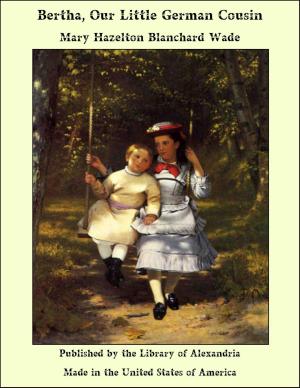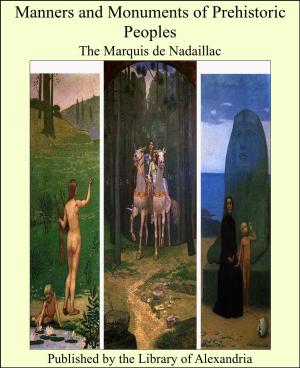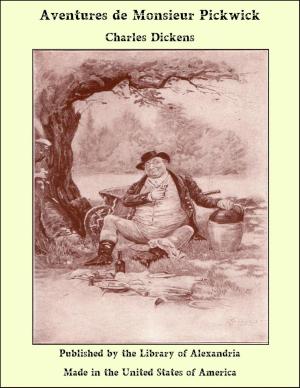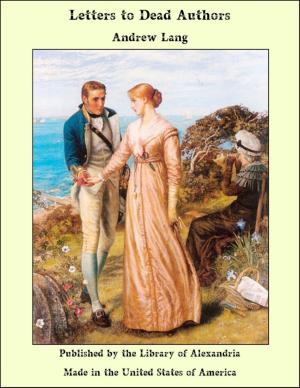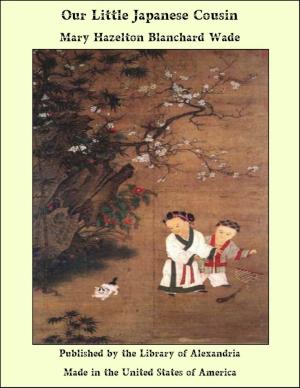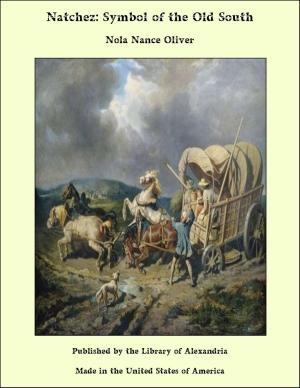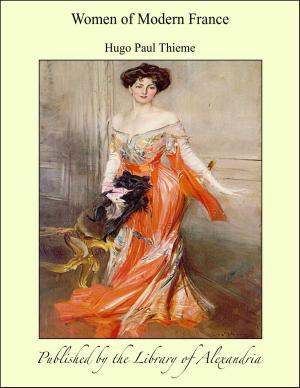Out of Mulberry Street: Stories of Tenement Life in New York City
Nonfiction, Religion & Spirituality, New Age, History, Fiction & Literature| Author: | Jacob August Riis | ISBN: | 9781465519979 |
| Publisher: | Library of Alexandria | Publication: | March 8, 2015 |
| Imprint: | Language: | English |
| Author: | Jacob August Riis |
| ISBN: | 9781465519979 |
| Publisher: | Library of Alexandria |
| Publication: | March 8, 2015 |
| Imprint: | |
| Language: | English |
MERRY CHRISTMAS IN THE TENEMENTS It was just a sprig of holly, with scarlet berries showing against the green, stuck in, by one of the office boys probably, behind the sign that pointed the way up to the editorial rooms. There was no reason why it should have made me start when I came suddenly upon it at the turn of the stairs; but it did. Perhaps it was because that dingy hall, given over to dust and drafts all the days of the year, was the last place in which I expected to meet with any sign of Christmas; perhaps it was because I myself had nearly forgotten the holiday. Whatever the cause, it gave me quite a turn. I stood, and stared at it. It looked dry, almost withered. Probably it had come a long way. Not much holly grows about Printing-House Square, except in the colored supplements, and that is scarcely of a kind to stir tender memories. Withered and dry, this did. I thought, with a twinge of conscience, of secret little conclaves of my children, of private views of things hidden from mama at the bottom of drawers, of wild flights when papa appeared unbidden in the door, which I had allowed for once to pass unheeded. Absorbed in the business of the office, I had hardly thought of Christmas coming on, until now it was here. And this sprig of holly on the wall that had come to remind me,—come nobody knew how far,—did it grow yet in the beech-wood clearings, as it did when I gathered it as a boy, tracking through the snow? “Christ-thorn” we called it in our Danish tongue. The red berries, to our simple faith, were the drops of blood that fell from the Saviour’s brow as it drooped under its cruel crown upon the cross. Back to the long ago wandered my thoughts: to the moss-grown beech in which I cut my name and that of a little girl with yellow curls, of blessed memory, with the first jack-knife I ever owned; to the story-book with the little fir-tree that pined because it was small, and because the hare jumped over it, and would not be content though the wind and the sun kissed it, and the dews wept over it and told it to rejoice in its young life; and that was so proud when, in the second year, the hare had to go round it, because then it knew it was getting big,—Hans Christian Andersen’s story that we loved above all the rest; for we knew the tree right well, and the hare; even the tracks it left in the snow we had seen. Ah, those were the Yule-tide seasons, when the old Domkirke shone with a thousand wax candles on Christmas eve; when all business was laid aside to let the world make merry one whole week; when big red apples were roasted on the stove, and bigger doughnuts were baked within it for the long feast! Never such had been known since. Christmas to-day is but a name, a memory. A door slammed below, and let in the noises of the street. The holly rustled in the draft. Some one going out said, “A Merry Christmas to you all!” in a big, hearty voice. I awoke from my reverie to find myself back in New York with a glad glow at the heart. It was not true. I had only forgotten. It was myself that had changed, not Christmas. That was here, with the old cheer, the old message of good-will, the old royal road to the heart of mankind. How often had I seen its blessed charity, that never corrupts, make light in the hovels of darkness and despair! how often watched its spirit of self sacrifice and devotion in those who had, besides themselves, nothing to give! and as often the sight had made whole my faith in human nature. No! Christmas was not of the past, its spirit not dead. The lad who fixed the sprig of holly on the stairs knew it; my reporter’s note-book bore witness to it. Witness of my contrition for the wrong I did the gentle spirit of the holiday, here let the book tell the story of one Christmas in the tenements of the poor
MERRY CHRISTMAS IN THE TENEMENTS It was just a sprig of holly, with scarlet berries showing against the green, stuck in, by one of the office boys probably, behind the sign that pointed the way up to the editorial rooms. There was no reason why it should have made me start when I came suddenly upon it at the turn of the stairs; but it did. Perhaps it was because that dingy hall, given over to dust and drafts all the days of the year, was the last place in which I expected to meet with any sign of Christmas; perhaps it was because I myself had nearly forgotten the holiday. Whatever the cause, it gave me quite a turn. I stood, and stared at it. It looked dry, almost withered. Probably it had come a long way. Not much holly grows about Printing-House Square, except in the colored supplements, and that is scarcely of a kind to stir tender memories. Withered and dry, this did. I thought, with a twinge of conscience, of secret little conclaves of my children, of private views of things hidden from mama at the bottom of drawers, of wild flights when papa appeared unbidden in the door, which I had allowed for once to pass unheeded. Absorbed in the business of the office, I had hardly thought of Christmas coming on, until now it was here. And this sprig of holly on the wall that had come to remind me,—come nobody knew how far,—did it grow yet in the beech-wood clearings, as it did when I gathered it as a boy, tracking through the snow? “Christ-thorn” we called it in our Danish tongue. The red berries, to our simple faith, were the drops of blood that fell from the Saviour’s brow as it drooped under its cruel crown upon the cross. Back to the long ago wandered my thoughts: to the moss-grown beech in which I cut my name and that of a little girl with yellow curls, of blessed memory, with the first jack-knife I ever owned; to the story-book with the little fir-tree that pined because it was small, and because the hare jumped over it, and would not be content though the wind and the sun kissed it, and the dews wept over it and told it to rejoice in its young life; and that was so proud when, in the second year, the hare had to go round it, because then it knew it was getting big,—Hans Christian Andersen’s story that we loved above all the rest; for we knew the tree right well, and the hare; even the tracks it left in the snow we had seen. Ah, those were the Yule-tide seasons, when the old Domkirke shone with a thousand wax candles on Christmas eve; when all business was laid aside to let the world make merry one whole week; when big red apples were roasted on the stove, and bigger doughnuts were baked within it for the long feast! Never such had been known since. Christmas to-day is but a name, a memory. A door slammed below, and let in the noises of the street. The holly rustled in the draft. Some one going out said, “A Merry Christmas to you all!” in a big, hearty voice. I awoke from my reverie to find myself back in New York with a glad glow at the heart. It was not true. I had only forgotten. It was myself that had changed, not Christmas. That was here, with the old cheer, the old message of good-will, the old royal road to the heart of mankind. How often had I seen its blessed charity, that never corrupts, make light in the hovels of darkness and despair! how often watched its spirit of self sacrifice and devotion in those who had, besides themselves, nothing to give! and as often the sight had made whole my faith in human nature. No! Christmas was not of the past, its spirit not dead. The lad who fixed the sprig of holly on the stairs knew it; my reporter’s note-book bore witness to it. Witness of my contrition for the wrong I did the gentle spirit of the holiday, here let the book tell the story of one Christmas in the tenements of the poor

